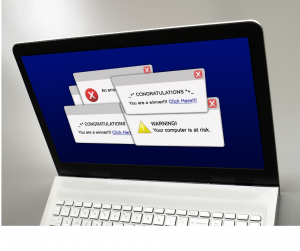We may recognise the obvious signs of anxiety in ourselves or in others but some people are good at hiding it and put on a brave face. Like the iceberg, only 10% is above the surface while 90% remains hidden.
Many clients that come to me for help with anxiety issues say that they feel isolated and alone as they battle with the symptoms. They often believe that no one would believe they have anxiety issues as they appear confident, and they are embarrassed to admit it. That in itself can be another sign of anxiety – worrying about what other people think, and believing that if they show any vulnerability it will mean they are not good enough or not perfect enough. Perfectionism is another one of those signs.
Anxiety is meant to warn us of immediate danger and it works very well most of the time. We rise to a challenge, deal with the situation and return to homeostasis, a psychologically balanced state of mind and body. However, chronic anxiety is a habit learned by the brain. It’s a process of faulty pattern matching that uses up a lot of energy and can lead to ill health, low self-esteem, lack of motivation and diminished levels of confidence. Over time, it can negatively influence our self image and core identity.
Trauma, at a young age especially, can leave an imprint in the brain that pre-disposes a person to suffer from anxiety. It may manifest later in life as feeling insecure in relationships, binge eating, alcohol or drug dependence, perfectionism or some other psychological problem. The trauma happened in the past, but the brain activates responses in the present, predicting a future based on historical events.
Although we can’t see what goes on beneath the surface, there are tell-tale signs to look out for, including insomnia, lack of concentration, irritability, avoidance or feelings of guilt or loneliness.
Pop-Ups
If your computer malfunctions, gets a virus or is infected with some sort of bug, you might get lots of annoying pop-up messages that divert your attention, slowing the machine down and causing problems. Anxiety can cause pop-up messages too, in the form of worrisome or obsessive intrusive thoughts. Negative thoughts can run on a loop either consciously or beneath the surface as a result of past trauma, anxiety or limiting beliefs, indicating an underlying faulty programme.

Programmes can be rewritten and updates can be installed. Neuroplasticity means we can change patterns of activity in the brain, redirecting the neural pathways and changing our automatic responses.
Hypnotherapy and BWRT (BrainWorking Recursive Therapy) are excellent tools that can rewrite the unhelpful programmes that cause anxiety. You can’t get rid of anxiety altogether as it’s part of the survival mechanism but you can retrain your brain to be more discerning, to offer you a better option, a better choice, when there is no immediate threat. You might prefer to activate a calm, neutral or confident feeling instead of anxiety. In fact, you can choose how you want to feel in any given situation when you retrain your brain.
Five things to remember if you are experiencing anxiety:
- Instead of judging yourself, be kind to yourself, you matter;
- You are not alone, lots of people, just like you and me, suffer from anxiety too;
- Most things in life are not permanent, everything passes;
- Don't take things personally, the world is not out to get you and most people are doing their best;
- Help is out there, asking for help is not a weakness, it is a strength.
Jan suffered from anxiety and depression for many years. She noticed a difference after just one session.
"I was recommended to Mary by a friend. At the time I was in a very dark place, suffering from anxiety and deep depression. Just after one session with Mary, I could not believe the difference I felt. As the weeks went by with each session I felt more calm, relaxed and positive. I would not hesitate in recommending Mary to anyone that needs help. She has truly been an inspiration and huge help to me." -Jan
Philip was new to anxiety and had never had a panic attack before. He discovered how to neutralise the anxiety, change his automatic thinking habits and activate positive feelings, and he was back at work in no time.
"I was apprehensive at first as my anxieties and panic attacks were new to me. Mary helped me to understand and re work my thinking and now I am back to work and am my old self once again. She has also helped countless others and some close friends to the family also. A truly wonderful lady and in a tricky profession, shines brightly. Thank you again." -Phillip
Don't suffer in silence, talk to someone who knows how to help. If you experience the signs of anxiety and want to retrain your brain, get in touch with me for more information. I offer a free, no obligation, 30 minute consultation to see if what I do can help you.

